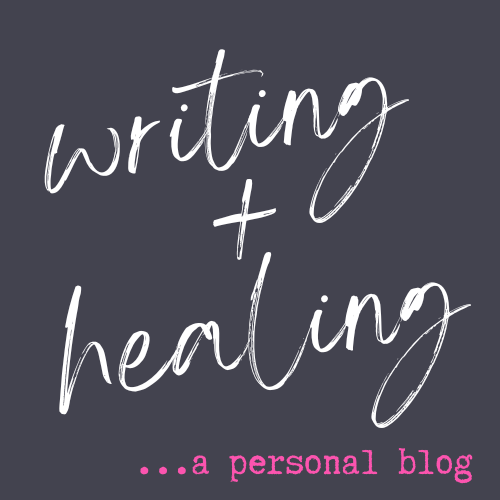I’d feel really good for awhile… go to yoga, cook healthy meals, enjoy my family. I’d think “Ya, I got this. As long as I take really good care of myself, I won’t get depressed. I’m doing what the world tells me to do: exercise, eat well, be with those you love, be grateful.”
I’d do all that, again and again and again.
But no matter how hard I tried, the good times always came to an abrupt halt. I’d inevitably find myself miserable, exhausted and curled up in bed. The voice in my head now berating me for not exercising ENOUGH, for not eating well ENOUGH, for not being grateful ENOUGH. I would burrow deep under the blankets, attacked by the thoughts in my head with nowhere to escape them.
And then that cloud would lift and I would once again feel hopeful that maybe this time, I could get it all under control. A longer gratitude list, perhaps.
So I would get back to it: exercise, good food, rest… and I would feel great. Until I didn’t.
Again, it would all crash down around me. No matter how “perfect” I was in the good times, the bad times would always return.
When I was 21, my psychiatrist diagnosed me with rapid cycling bipolar but when I read about it, it never felt right. Although the inevitable mood shifts were familiar, the descriptions of mania weren’t something I had ever experienced.
The years passed… finishing university was incredibly difficult. Attending regularly and keeping up on my homework was always a challenge.
I would excel when I was feeling good. I would crumble when I didn’t. I thought I was weak. I thought I was broken. I thought it was all my fault for not taking good enough care of myself. And the world around me, the not-so-helpful self-help movement, would feed me the same line, telling me that my willpower was weak, my mindset wasn’t right, my routines not optimized.
In the last few years, the cycling became much more pronounced. I could feel wonderful one day, capable of changing the world. And the next day I couldn’t get out of bed. I hated myself. Why didn’t I have the willpower to overcome my moods? Why wasn’t that damn gratitude list changing my life the way all the life coaches said it would? I dug myself into a deeper and deeper hole, blaming myself for my pain, convinced I just needed to be more diligent to overcome it.
Then one day, after yet another absence from work due to anxiety, I typed these words into Google: “depression during PMS”. It seemed like the hardest days were always before my period and I wondered, for the first time, if there was a connection.
And there it was: Premenstrual Dysphoric Disorder.
I read over the symptoms. I looked back over my calendar.
For so many years I had felt like I was going crazy. I had hated myself for not being able to control my moods. I had pretty much given up on ever being successful, never able to show up consistently the way the professional world demands.
But suddenly, with my menstrual calendar and my absences from work neatly aligned, I had hope.
Tears lined my cheeks.
The Mood Disorders Association of Ontario describes Premenstrual Dysphoric Disorder as:
…a condition associated with predominantly severe psychological symptoms which cause disruption of the daily lives of affected women. Dysphoria is derived from the Greek word dusphoros, which means hard to bear. The symptoms of PMDD are recurrent. They usually start seven to 10 days before menstruation and decrease within a few days of the onset of menstrual flow. Then, they disappear completely until the next premenstrual phase.
Unlike PMS, PMDD symptoms are very severe, completely disrupting the lives of women affected by it. Women diagnosed with PMDD usually present 5 or more of the following symptoms:
- Very depressed mood, feelings of hopelessness
- Marked anxiety, tension, feelings of being “on edge”
- Marked mood shifts (e.g., suddenly feeling tearful or extremely sensitive)
- Persistent or marked anger or irritability or increased interpersonal conflicts
- Decreased interest in usual activities (e.g., work, school, friends, hobbies)
- Difficulty concentrating
- Fatigue, tiredness, loss of energy
- Marked change in appetite, overeating, food cravings
- Insomnia (difficulty sleeping) or sleeping too much
- Feeling out of control or overwhelmed
- Physical symptoms such as breast tenderness or swelling, headaches, joint or muscle pain, “bloating”, weight gain
I thought back over the years… my ex had once complained that every month, before my period I would “tear our life apart”… suddenly everything made sense: why I cycled but never experienced mania, why no matter how hard I tried, I would always dip, always end up exhausted, anxious and depressed.
Part of me was angry. I was a mental health worker and advocate, how did I not know about this? How had no doctor ever suggested it? How did something so big and so obvious stay hidden right there in plain sight?
The answer to all these questions is simple, though not necessarily easy to stomach. Like most, (if not all), women’s health issues, we are under-educated. More and more studies are coming out illustrating the drastically different experiences women and men have when seeking medical treatment. Women are considered to be imagining their symptoms, often treated with anxiety meds and told to rest. And moving beyond the patient-doctor interaction, our medical knowledge is based almost entirely on the study of the male body. Caroline Criado Perez presents numerous cases and data points of the bias in her new book “Invisible Women: Data Bias in a World Designed for Men.”
The reality is, if our healthcare system didn’t suffer from such extreme gender bias, the (male) psychiatrist who diagnosed me with rapid cycling bipolar would have asked me to track my moods against my cycle. My (female) doctor would have suggested the same at some point. This diagnosis could have been made almost twenty years ago, maybe saving me from dropping out of university, losing a full scholarship, missing a full semester of college, intense postpartum depression, maybe even divorce.
The simple truth is, if even one of my many medical practitioners had thought to consider PMDD, my life today might be very, very different.
Of course, getting hung up on “what ifs” for too long doesn’t help, so instead I look forward.
For the first time in years, I have real hope. I’m no longer scared of the ever-recurring funk that descends upon me, throwing my whole world into question. Instead I can plan my life in a way that respects and honours my body, my moods.
Few women ever find complete relief. Most, like me, take antidepressants to keep their moods manageable but still need to make significant life adjustments to manage. For me that means keeping my expectations low during my PMDD weeks. I don’t make a lot of plans. I give my loved ones a heads up on my mood. I rest as much as possible. I don’t judge myself for having an extra movie night with the kids or feeding them cereal for dinner (not that any busy modern mother should judge themselves, more to say about that another time).
I finally feel like I’m no longer stuck on a mood roller-coaster, smashing haphazardly through my life. Now, I’m the driver. I know there are high times and low points. I have the map. I can see the dips coming and give myself more compassion until I rise again. And in the good times, I can soak them up without worry that staying up too late or an extra piece of cake will mean an emotional crash the next day. I can’t control it, which for some might feel scary but for me, it’s incredibly freeing. Not being able to control it means it’s not my fault.
Statistics say that 1 in 20 women have PMDD but also that 90% of PMDD cases go undiagnosed so the numbers could easily be higher than suggested. If you experience mental health issues that seem to come and go, please take the time to track them along with your menstrual cycle for a few months. Knowledge is power. Sometimes we just need to understand our crazy in order to stop feeling so damn crazy.
Sources:
https://www.mooddisorders.ca/faq/premenstrual-dysphoric-disorder-pmdd#t4n483




